Turchia, il primo effetto della strage di Suruc è stato il blocco di Twitter: poche ore off-line per il social network, ma un’interruzione che pesa e porta con sé un’infinità di significati e di domande. Il Paese di Recep Tayyp Erdogan ha infatti disposto la chiusura di tutti i cinguettii dopo che la rete era stata invasa dalle foto dell’attentato del 20 luglio nella città al confine con la Siria, in cui hanno perso la vita 32 persone per mano di un kamikaze. È la terza volta in poco tempo che la rete viene bloccata: non sono pochi quelli che vedono nel divieto l’ennesimo tentativo di censura, giustificata però dal fatto che in Turchia i tribunali possono proibire la diffusione di immagini e informazioni relative a situazioni di crisi che investono il Paese.
https://youtu.be/Eqi4ymYXM0Q
La strage e il kamikaze, secondo le autorità turche. Ma può fare poco il blocco di Twitter davanti alle immagini di una strage che hanno fatto il giro del mondo. Tutto è successo lunedì: mentre nel centro culturale della città di Suruc, l’Amara Culture Center, era in corso un dibattito sulla prospettiva di una regione autonoma al confine tra Turchia e Siria, un kamikaze si è fatto esplodere. Un attentato ripreso in diretta dalle molte telecamere presenti. Il centro culturale è controllato dal Partito democratico del popolo (Hdp) e spesso ospita visite di giornalisti e volontari che lavorano con i rifugiati provenienti da Kobane. Sull’identità dell’attentatore si è dibattuto per un’intera giornata, fino a giungere alla conclusione che si tratta di Seyh Abdurrahman Alagoz, proveniente da Adiyaman, nel sud-est del Paese a maggioranza curda. Non si sa se fosse solo o supportato da complici. La sua carta d’identità è stata trovata su un cadavere irriconoscibile sulla scena dalla strage e le autorità turche hanno confermato la sua identità dopo aver condotto gli esami del dna. In un primo momento si pensava che a farsi esplodere fosse stata una 18enne vicina all’Isis, che secondo il quotidiano Haberturk era conosciuta dalle forze di sicurezza di Ankara, già da tempo informate sulla sua presenza in Turchia insieme ad altre due donne, potenziali suicide.
GUARDA LA GALLERY (8 foto)
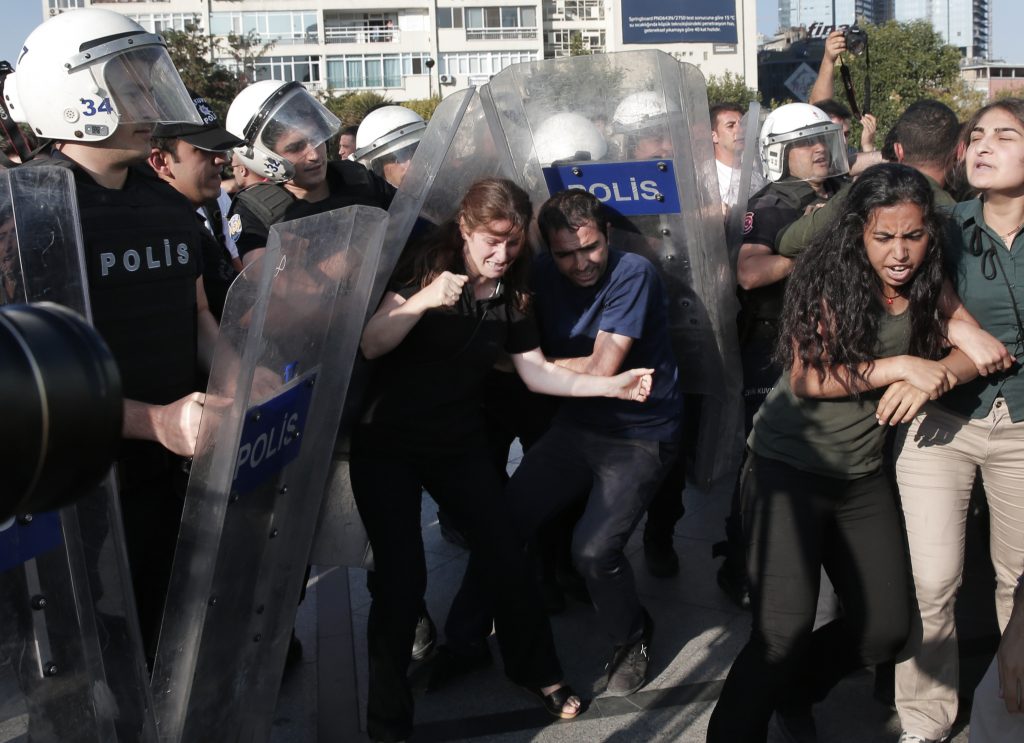
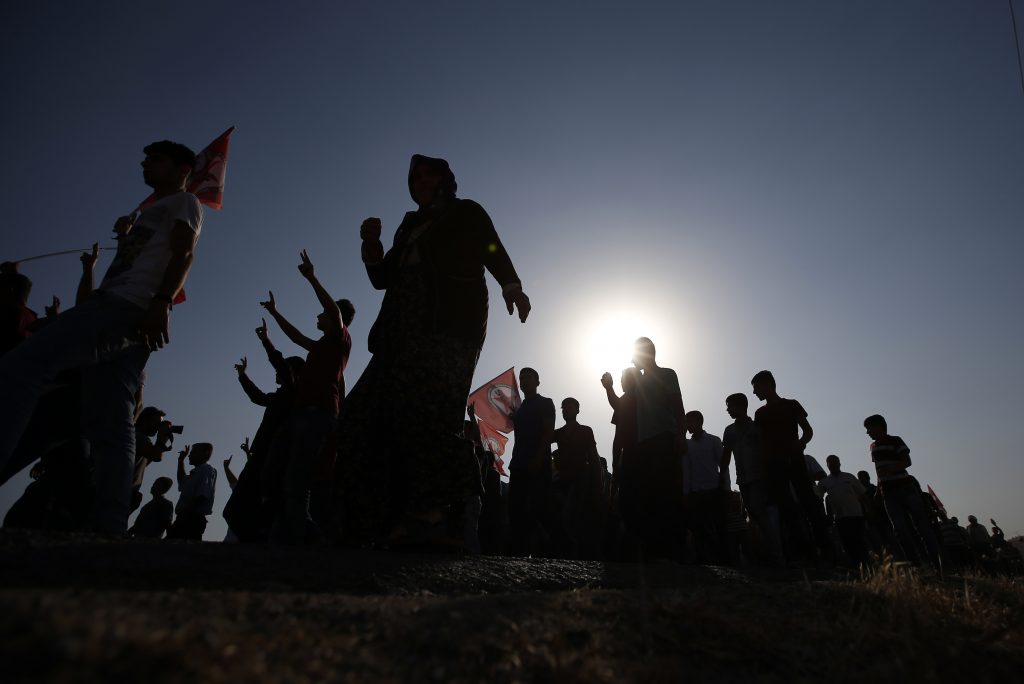
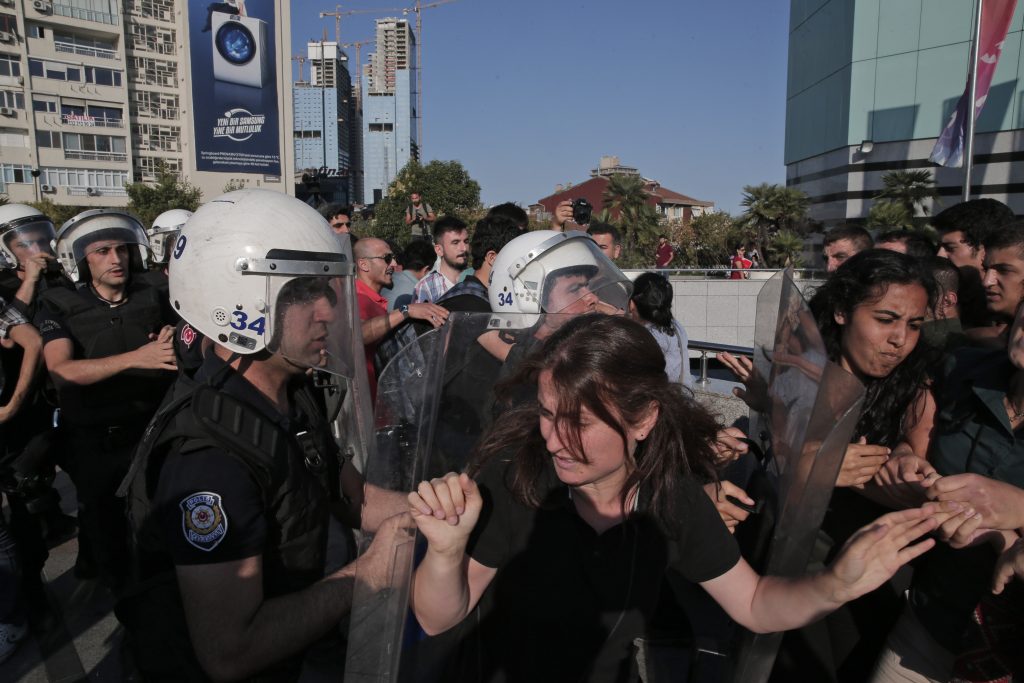
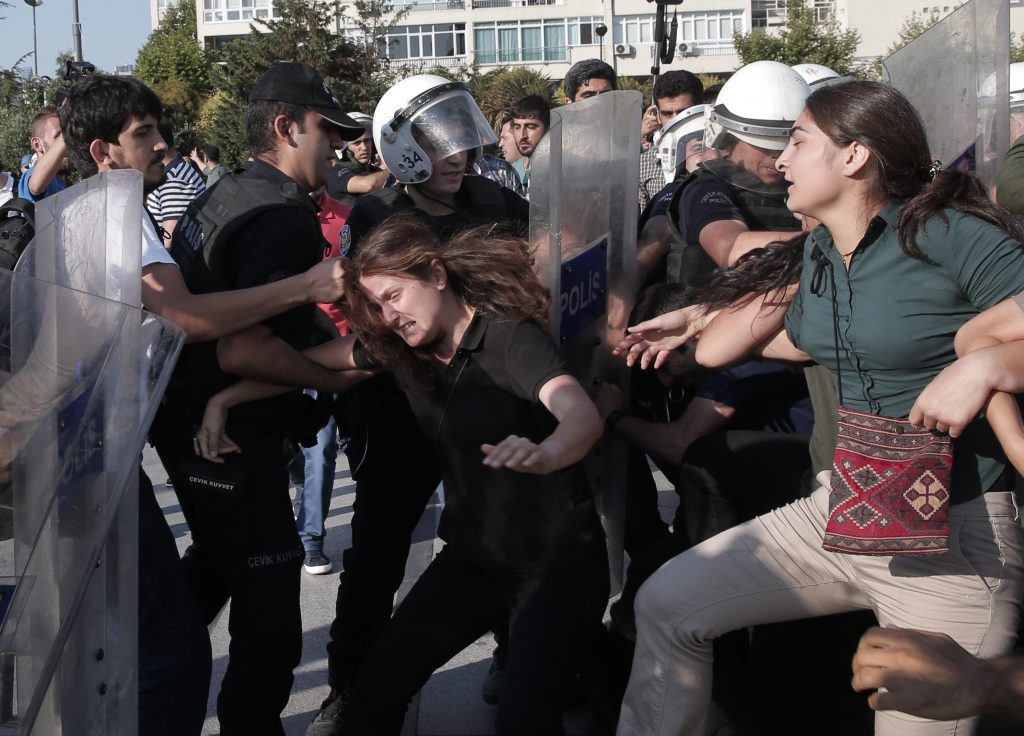
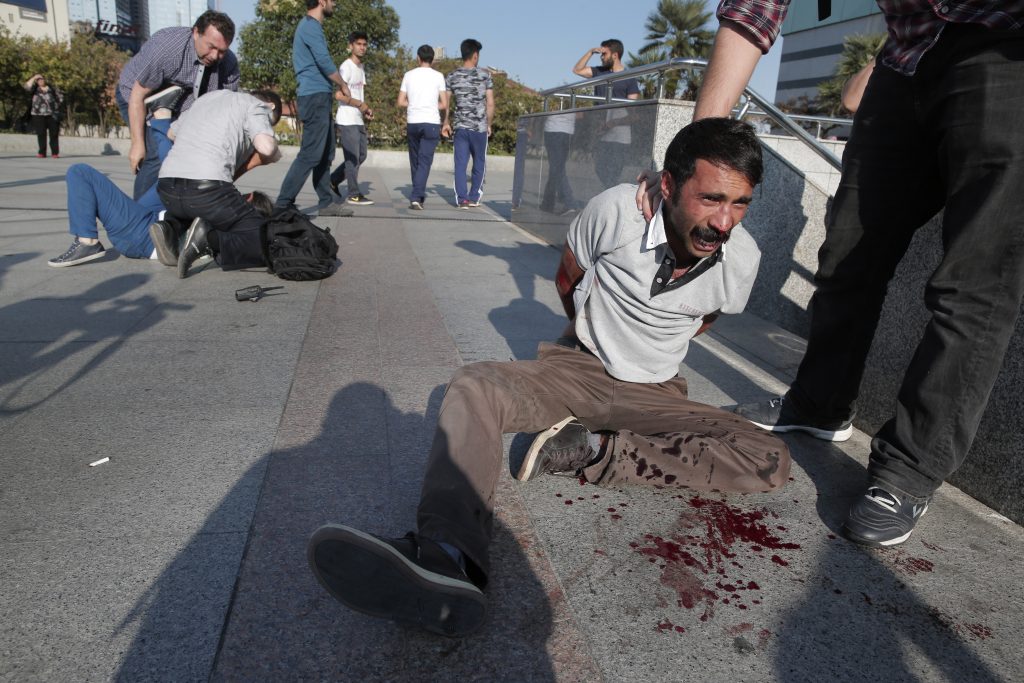
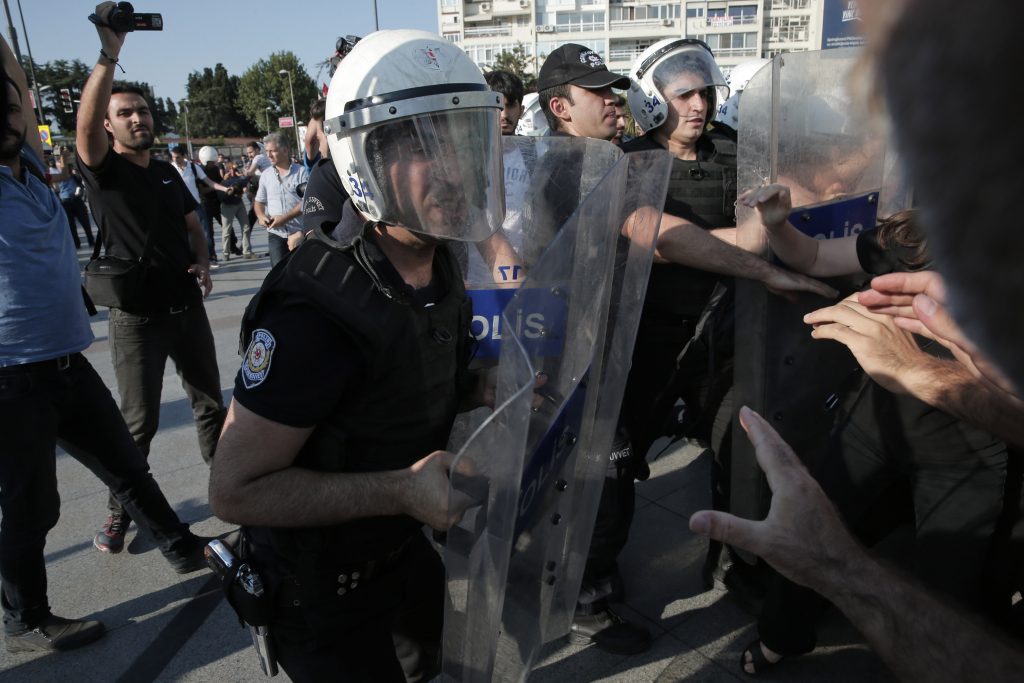
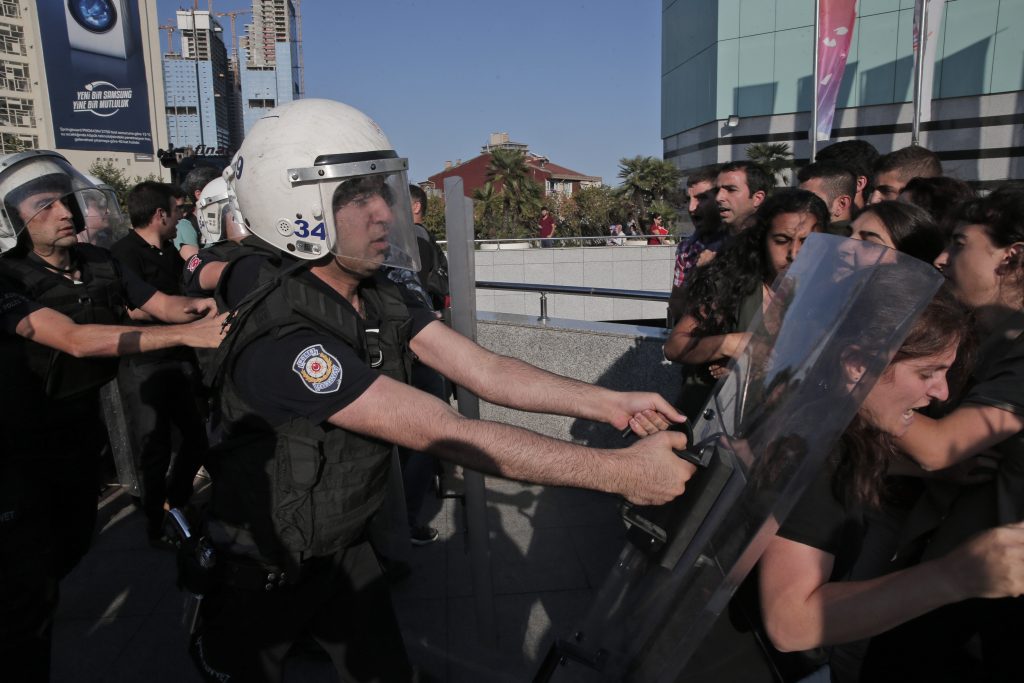
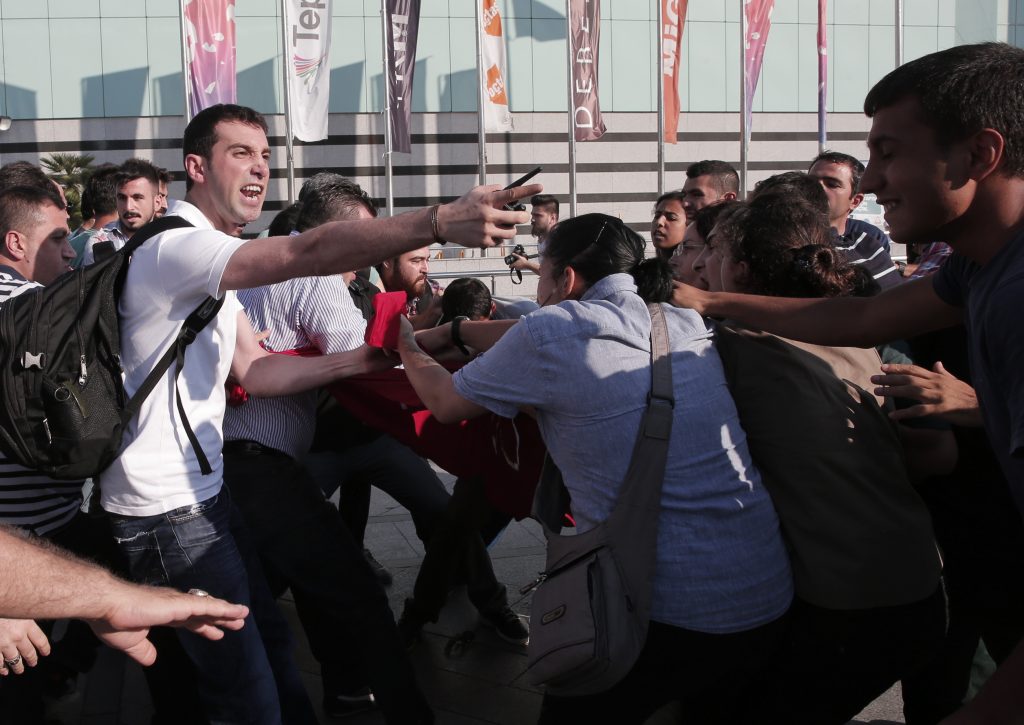
Stop a Twitter. Il blocco di Twitter era stato deciso dopo le grandi manifestazioni di protesta scatenate dall’attentato in tutto il Paese, che si sono risolte con pesanti cariche della polizia. I manifestanti, oltre a dimostrare la loro solidarietà alle vittime, hanno urlato slogan contro Erdogan e il suo partito, individuato come il mandante dell’eccidio di Suruc. Pronto l’intervento della polizia in assetto antisommossa, che ha sparato lacrimogeni contro le decine di migliaia di persone scese in piazza a Istanbul, in piazza Taksim, e ad Ankara, Izmir, Diyarbakir. Due i feriti, colpiti dal fuoco della polizia, a Mersin. Il tribunale di Suruc ha vietato in particolare la pubblicazione di foto e video sull’attentato non solo su Twitter, ma anche su quotidiani e televisioni, e ha disposto il blocco dell’accesso alle immagini su Internet. Più tardi, poi, lo sblocco di Twitter, permesso solo dopo che il social network ha accettato di non pubblicare più immagini dall’esplosione.
[Il selfie scattato da alcuni dei ragazzi presenti lunedì a Suruc, poco prima dell’esplosione]
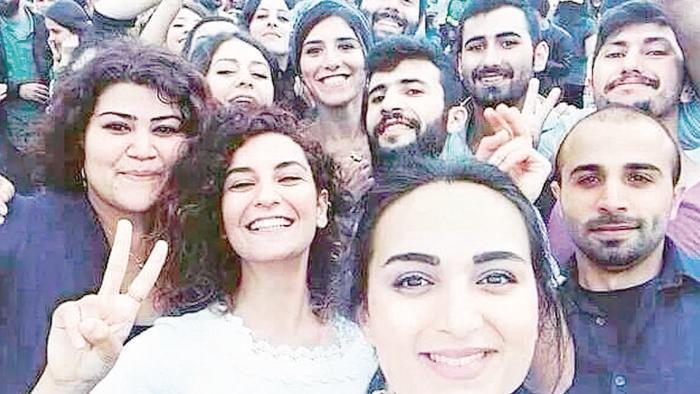
La città di Suruc e suoi giovani. Suruc è una città turca al confine con la Siria, in una zona a maggioranza curda, già segnalata da tempo ai servizi segreti per la sua pericolosità. Un luogo abbandonato da tempo dalle istituzioni, che qui latitano, anche vista la vicinanza con Kobane, città simbolo della resistenza allo Stato Islamico da parte del popolo curdo. Quando il kamikaze, lunedì, si è fatto esplodere, le vittime stavano cantando slogan di solidarietà con la lotta della resistenza curda contro lo Stato Islamico. Erano in 330, tra ragazzi e ragazze, arrivati da tutta la Turchia. In 32 sono morti, 100 di loro sono rimasti feriti, alcuni in gravi condizioni. Erano pronti a partire per Kobane, dove dovevano portare aiuti e giocattoli alla popolazione, costruire una biblioteca e un museo dedicato all’epica lotta della città. La maggior parte di loro era alevita, una confraternita di derivazione sciita. Erano militanti filo-curdi, che stavano illustrando in una conferenza stampa il loro progetto di superare il confine e andare ad aiutare chi stanno ricostruendo Kobane. Appartenevano all’SGDF, la Federazione delle associazioni della gioventù socialista, entità di estrazione marxista-leninista che ha la “rivoluzione” come obiettivo prioritario.
GUARDA LA GALLERY (8 foto)
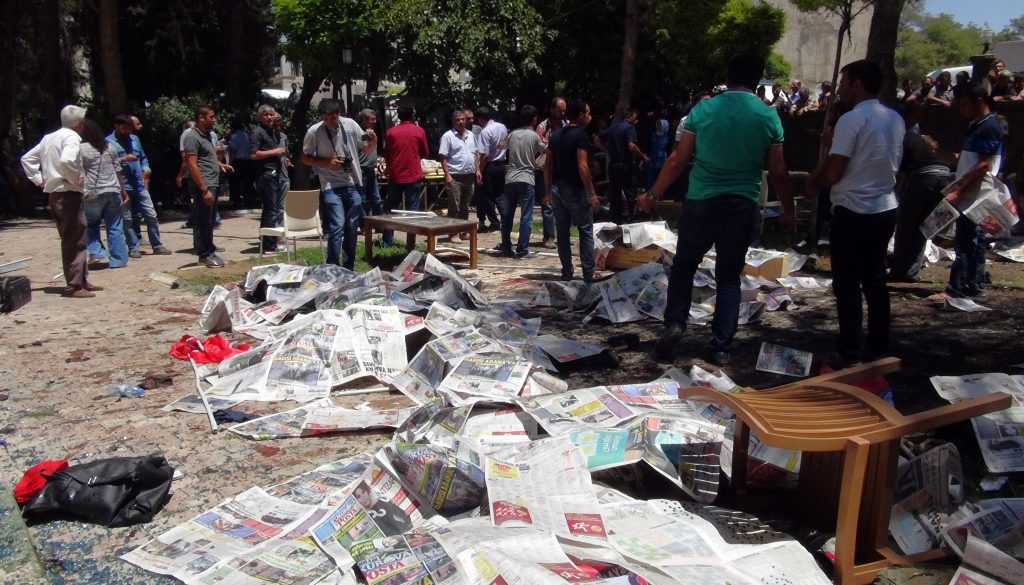
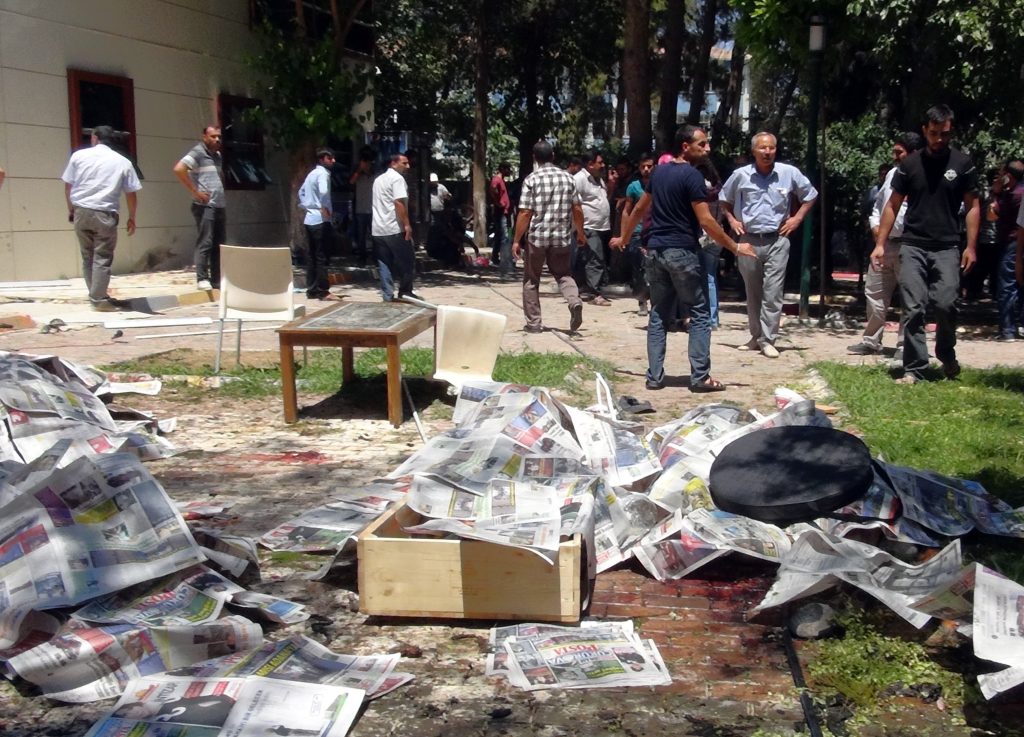
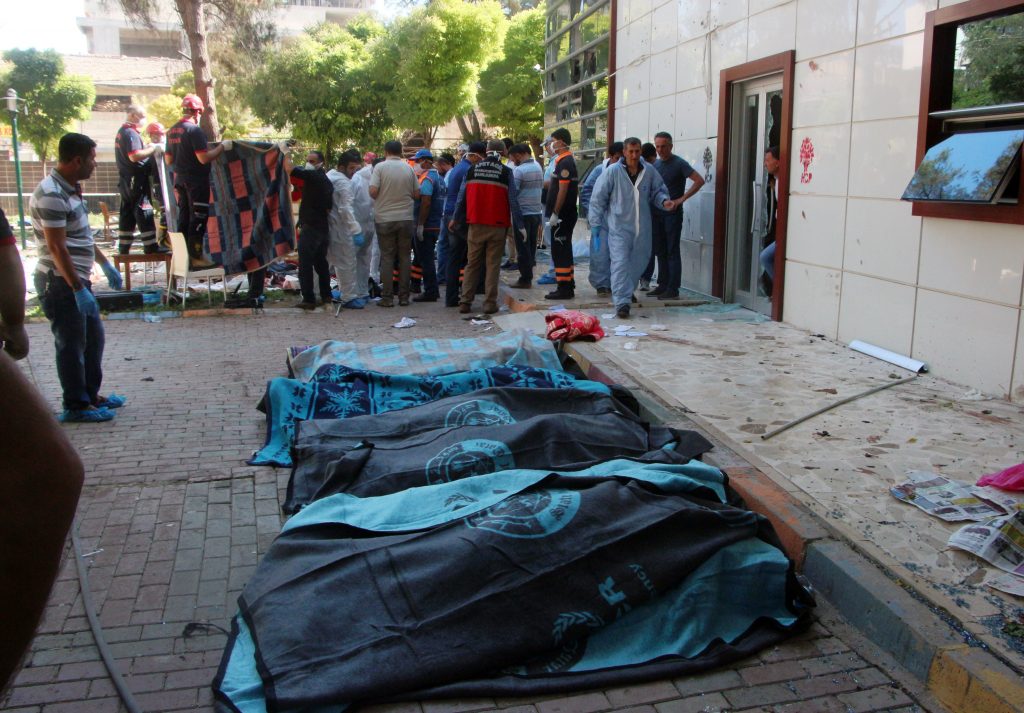
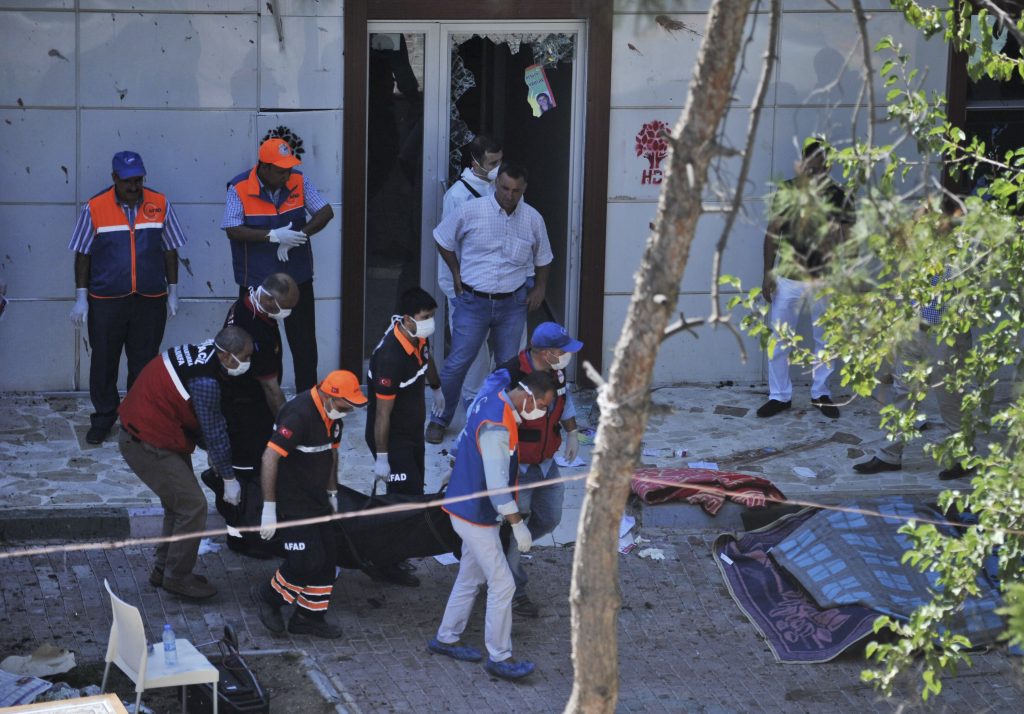
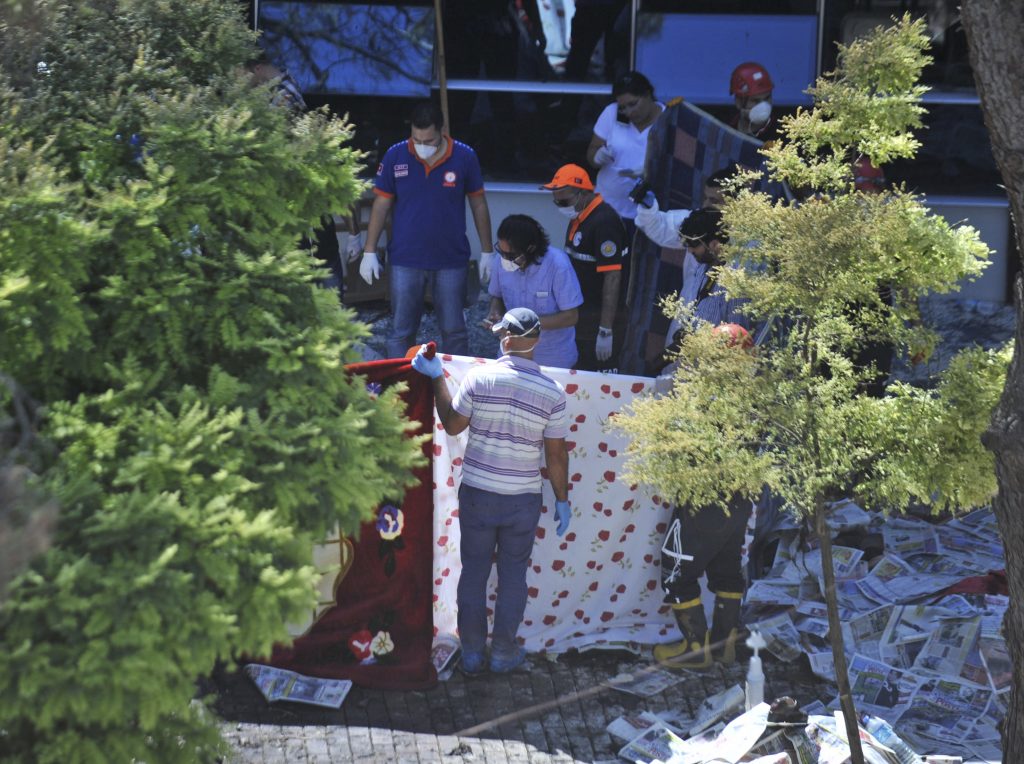
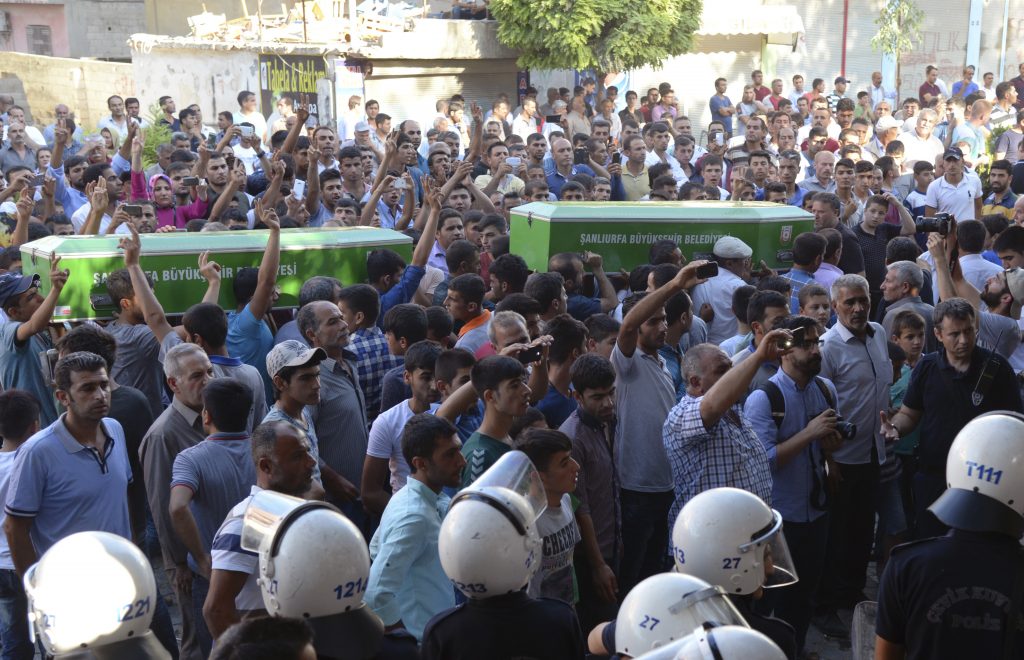
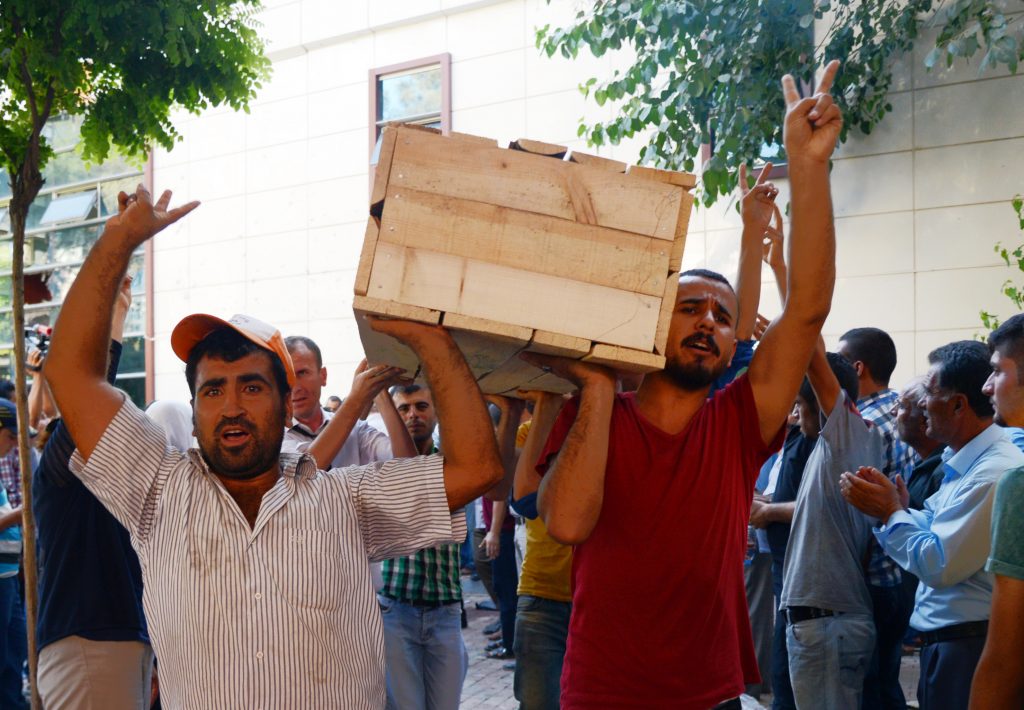
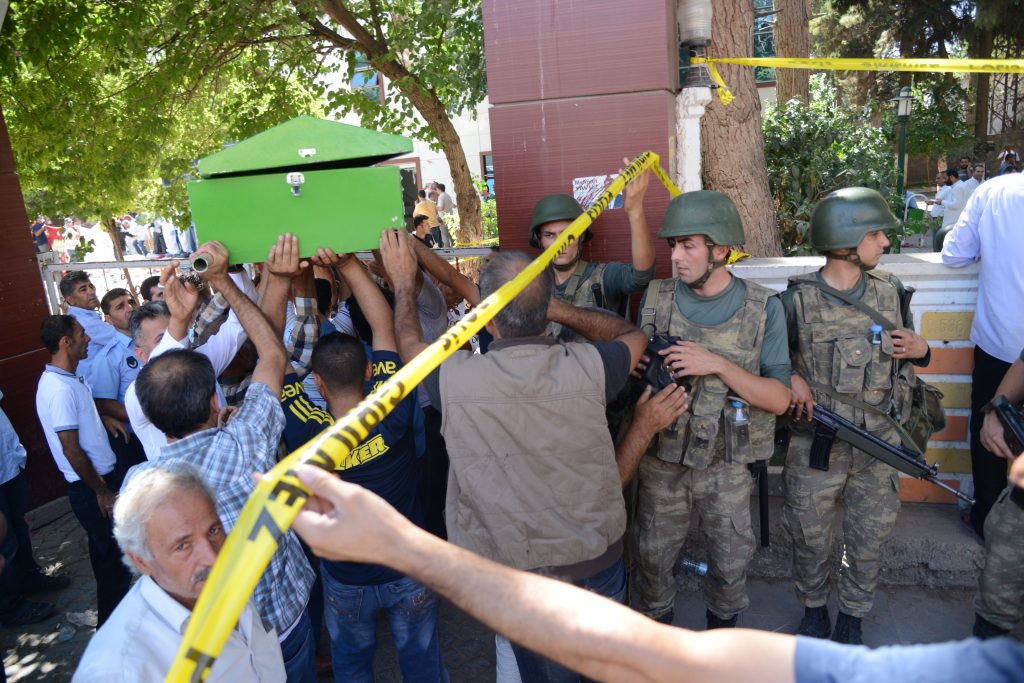
Isis o Turchia dietro l’attentato? L’attentato è stato attribuito all’Isis, anche se non c’è stata alcuna rivendicazione del gesto. Sono però in molti in Turchia, dagli attivisti ai partiti di opposizione, a ritenere che l’Isis da solo non c’entri e che la strage sia colpa del governo di Ankara, troppo morbido nei confronti dello Stato Islamico. La Turchia infatti non ha mai preso una posizione ufficiale di condanna nei confronti del Califfo e dei suoi accoliti. Da una parte il Paese negozia ormai da anni un accordo con curdi, ma dall’altro però non esprime condanna nei confronti di chi, come lo Stato Islamico, li combatte. «Massacro del governo a Suruc», recitava uno dei tanti cartelli branditi dai manifestanti a Istanbul dopo l’attentato. Secondo loro la responsabilità della strage ricade sull’Akp, il partito al governo, che non fa altro che alimentare il caos relativo alla questione curda. Un fatto, quello di Suruc, che sarebbe parte di un più vasto piano volto a rompere la solidarietà tra turchi e curdi. Mentre stava facendo loro visita in ospedale il premier Davitoglu aveva assicurato ai sopravvissuti che la Turchia avrebbe aumentato la sicurezza al confine. Una promessa a cui gli oppositori non credono, convinti, come molti in Occidente, che la Turchia stia facilitando il passaggio dei sostenitori dello Stato Islamico perché preoccupata dal separatismo curdo e dalla solidarietà alla causa riscossa dalla popolazione turca.

